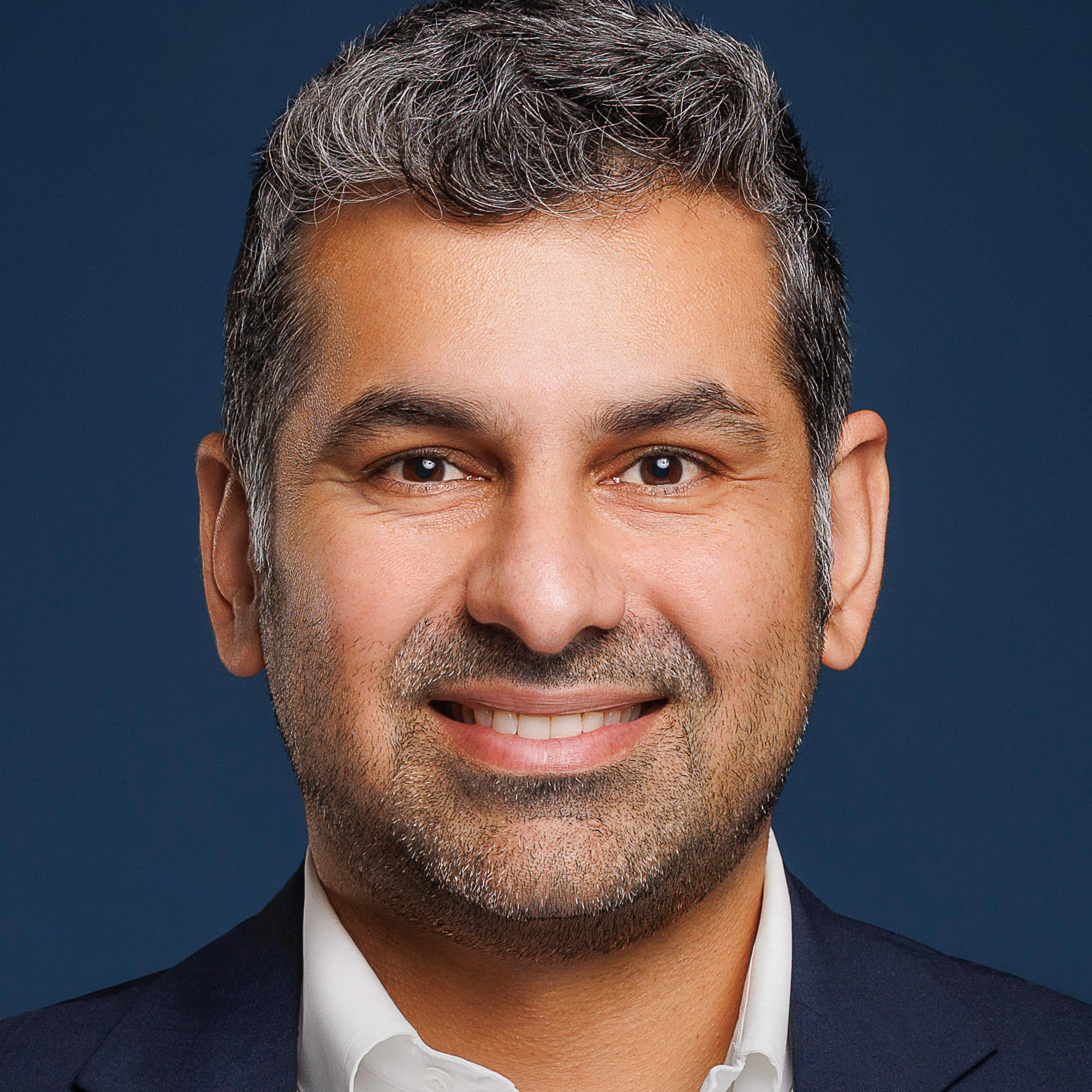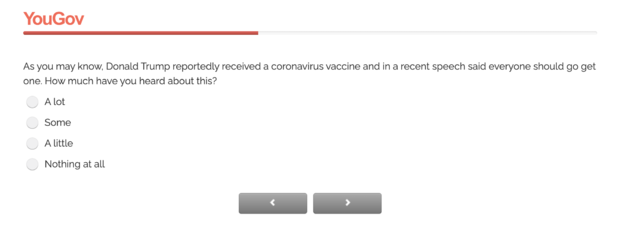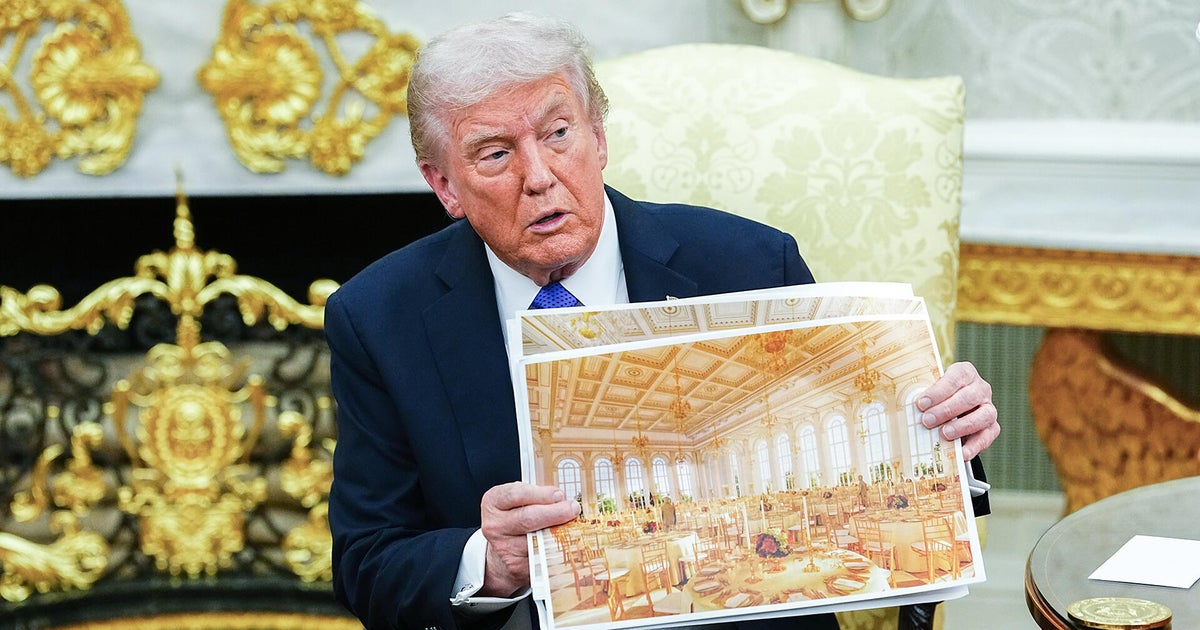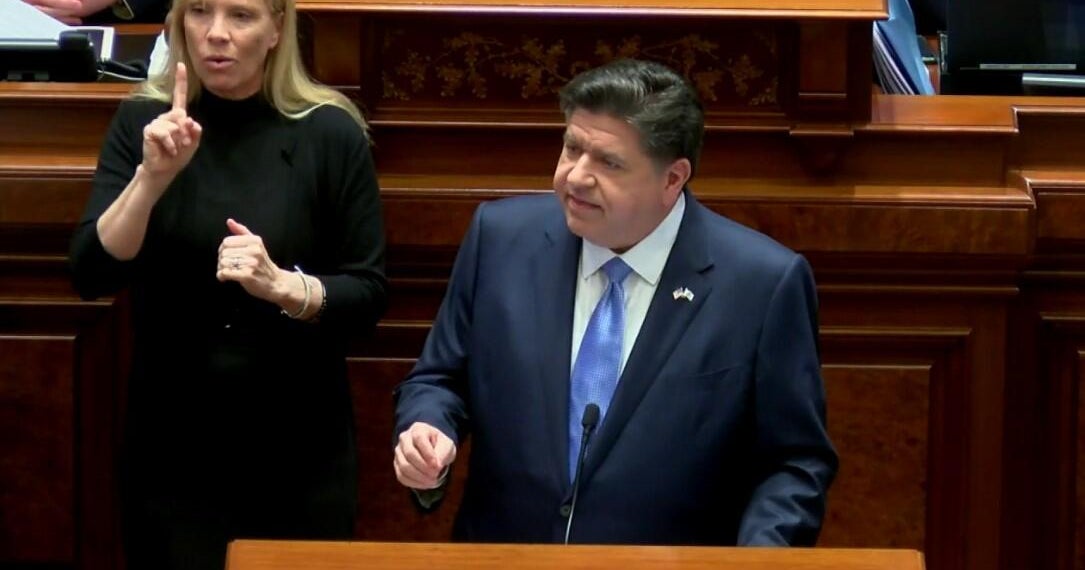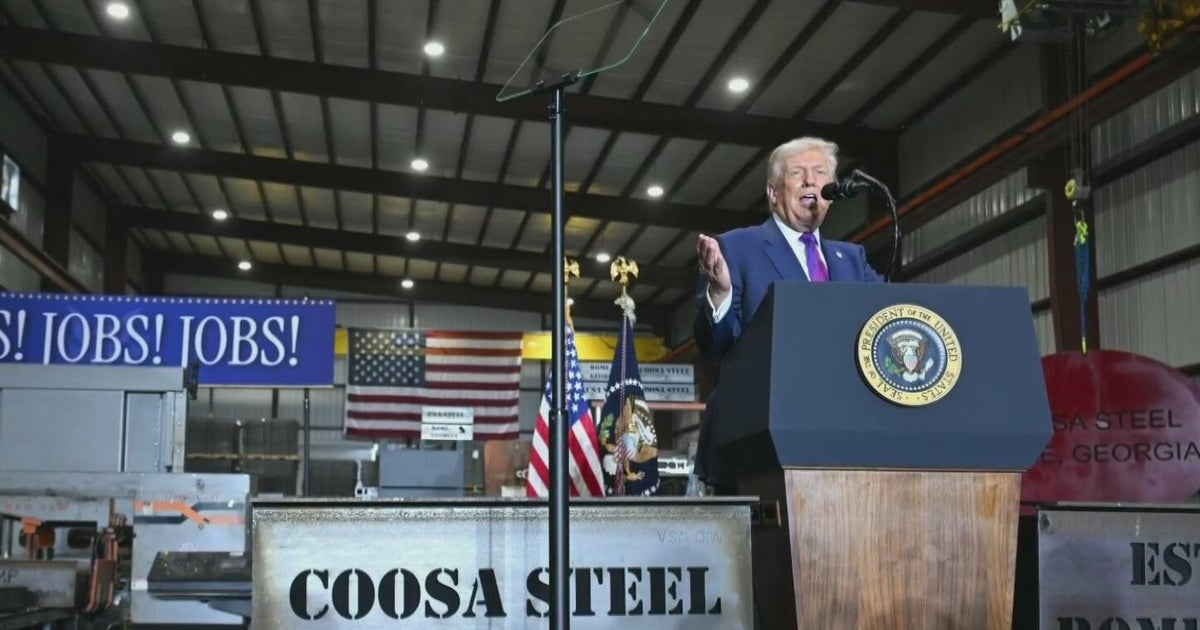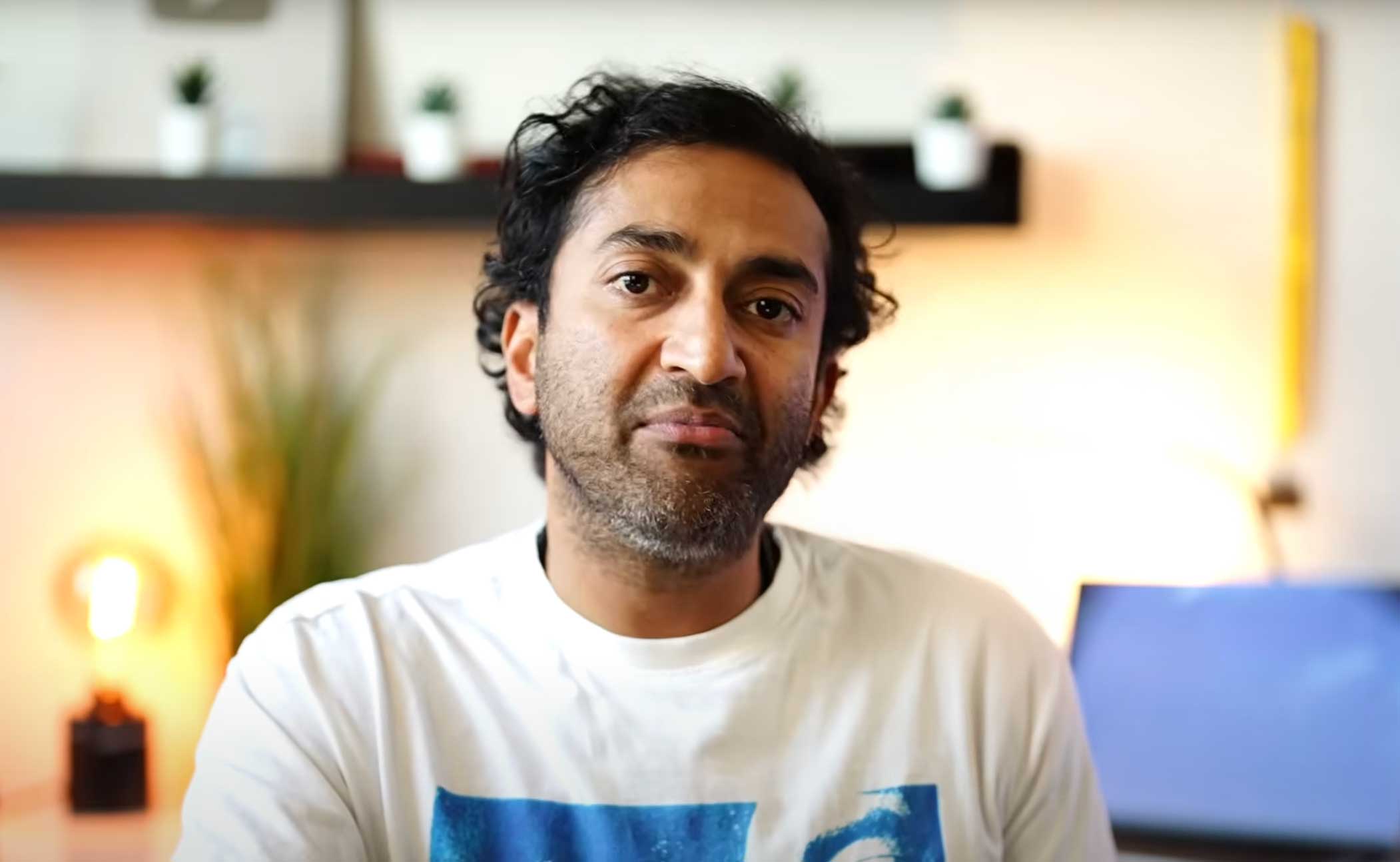Polling analysis: Can vaccine hesitancy be reduced by a president's encouragement?
Many Americans still express reluctance about getting vaccinated for COVID-19, which could leave many unnecessarily vulnerable to the disease and hinder the country's return to normalcy. Many wonder whether presidents — especially former President Trump — could impact people's willingness to get vaccinated. CBS News ran an experiment to explore this question with respect to both Presidents Biden and Trump.
Telling people that Mr. Biden and Mr. Trump have been vaccinated and want others to do the same has an impact on some but not others. Those who were already resistant to being vaccinated are mostly unmoved by these messages, but there's a positive impact on people who were at least on the fence. In the aggregate, Americans are moving to greater vaccine acceptance, and our findings suggest that presidents can nudge some of them further along that path.
The experiment
Our experiment took the form of a short survey, but there was a twist. Each respondent was randomly assigned to see either an extra question about Mr. Biden endorsing the vaccine; an extra question about Mr. Trump doing so; or no extra question at all. Our idea in presenting the extra question was to unobtrusively tell people about the endorsement — it would be a reminder for some and news to others.
Here's what that looked like in Mr. Trump's case:
Survey experiments are commonly used in political science and psychology research. Because respondents are randomly assigned, their background traits and attitudes should be very similar across the assignment groups. Any resulting differences in opinion can therefore be attributed to what we want to measure — here, presidential cues — instead of extraneous factors. (In fact, the same principle is used to estimate the efficacy of medicine and vaccines. It's how we know they work.)
We theorized that Mr. Biden would be more effective with Democrats and Mr. Trump with Republicans, so Democrats saw either the Biden cue or nothing, while Republicans saw the Trump cue or nothing. (Republicans and Democrats include leaners here. Pure independents had a chance of seeing either cue.)
We recontacted respondents from a previous survey for this experiment, allowing us to compare their current and previous responses. In addition to asking whether they would get vaccinated, we asked if they "definitely" or "probably" would or would not, giving us gradations to analyze.
The information about Trump comes as news to many. Only 11% of Republicans say they have heard "a lot" about Mr. Trump getting vaccinated and encouraging others to do the same in a recent speech. Another third say they've heard "some" about it, with a similar number reporting having heard "nothing at all" about it, suggesting a large pool exists that a Trump message could move. Mr. Trump's vaccination took place in privacy at the White House in January.
On the other hand, many more report familiarity with Mr. Biden's vaccination — unsurprising given its very public nature — and his plea to others to do the same. Eight in 10 Democrats report hearing at least some about it, with most of them saying they have heard a lot.
Biden and Democrats
With that context in mind, let's look at the impact of these presidential reminders on what people say about getting vaccinated. First, among people who said "maybe" or "no" to getting a vaccine when we first surveyed them — a group we'll refer to as "vaccine hesitant" for the sake of brevity, about three in 10 Democrats and half of Republicans were hesitant in early March.
Reminding vaccine-hesitant Democrats about Mr. Biden's endorsement of the vaccine is a somewhat mixed bag. On one hand, it softens resistance, pushing "no" responses to "maybe." On the other, it also results in a lower percentage who say "yes" outright.
The evidence for decreased resistance is that the Biden cue decreases the percentage saying no outright by 12 points. This holds even when we look at the probabilistic scale, with the cue reducing the percentage saying "definitely" no by 6 points (in statistical parlance, a marginally significant effect).
This decrease in resistance is accompanied by a substantial increase in "maybe" responses, by 21 points. This increase comes partially at the expense of outright "yes" responses, which the cue in fact decreases by 8 points. Importantly, most of those maybe responses are "probably" yes in the follow-up scale. So while the Biden cue reduces hesitancy, it curiously also seems to cause some Democrats who may have said yes to say maybe instead.
Trump and Republicans
When it comes to vaccine-hesitant Republicans and Mr. Trump's encouragement, we see a different pattern. Republicans who outright say "no" do not budge when told of his endorsement of vaccines; however, among Republicans more on the fence, we see movement.
Being told that Mr. Trump got vaccinated and encourages others to do the same doesn't reduce hesitancy among Republicans at all. There is not even an increase in the percentage who say they'll "probably" get vaccinated, so at first blush, it seems like this cue does not move people.
That would be going too far, however, because the Trump cue does affect certain Republicans. Those who previously said yes or maybe to vaccines show increased willingness with the cue: they become 15 points more likely to say yes now. There is an accompanying 14-point drop in the percentage saying maybe, indicating some Republicans move off the fence when they hear about Mr. Trump.
Mr. Biden's vaccine endorsement may have a similar effect on Democrats who previously indicated a willingness to get vaccinated — who make up the vast majority of unvaccinated Democrats. The Biden cue caused a five-point jump in "definitely" responses, at the expense of "probably" responses (both marginally significant effects).
While these cues do not produce dramatic swings in vaccine hesitancy, this survey experiment nonetheless provides evidence that presidential cues matter. The Biden cue lowers resistance among his fellow Democrats. Both the Biden and Trump cues appear to increase willingness among co-partisans who previously had at least indicated an openness to getting vaccinated.
It is particularly interesting that in our experiment, Mr. Trump's endorsement increases willingness only among Republicans who were not hostile to vaccines previously. It is very possible that a stronger experimental cue would have resulted in further inroads. Our text-based cue was brief and subtle. A full-throated Trump statement, possibly with video, would likely be more powerful. Moreover, experiments are somewhat artificial by necessity. They trade some real-world validity for the ability to identify causality. In the real world, a clear, persistent effort by Mr. Trump may work.
Another important caveat is that this data relies on people's self-reported intentions, which don't always line up exactly with their actual behavior. Even so, what people say they plan to do is an important signal, and we should take people's self-reported hesitance about vaccines seriously.
Moving toward vaccination
While even presidents may struggle to persuade some, the good news is that many people are nonetheless changing their minds about vaccines, moving toward vaccination. In the short time between our two most recent surveys — a week for most respondents — more Americans say they have been vaccinated or express greater willingness, even in the absence of any cues.
Among those who previously said they were planning to get vaccinated, 16% now report having received at least one dose in our survey's control condition. Moreover, one in five of those who previously said maybe to getting a vaccine now say yes outright — though most of them say they probably will, rather than definitely will, in the follow-up question.
These shifts toward willingness substantially outpace movement in the opposite direction, from previously yes to maybe now and from maybe to no, for instance. Among those who previously reported being unvaccinated, 18% now express greater willingness to get a vaccine, while 6% now express greater hesitancy, yielding a net shift of 12 percentage points toward willingness.
While there's certainly still some skepticism to overcome, the overall trend is positive in the U.S. To the extent that vaccination rates are slowed down by the demand-side inertia, rather than the supply-side constraints, there is good reason to believe that presidents — current and former — can get more people to make that appointment.
This CBS News survey was conducted by YouGov using a nationally representative sample of 1,958 U.S. residents interviewed between March 17-21, 2021. (Respondents were recontacted from a previous survey fielded from March 10-13, 2021.) This sample was weighted according to gender, age, race, and education based on the American Community Survey, conducted by the U.S. Bureau of the Census, as well as the 2020 presidential vote and registration status. Margin of error is ± 2.4 points for the full sample. Treatment effects were estimated both via differences in proportions and regression models including previous response to the vaccine question. Effects reported above are statistically significant at p < .05, unless noted otherwise.
Toplines:
